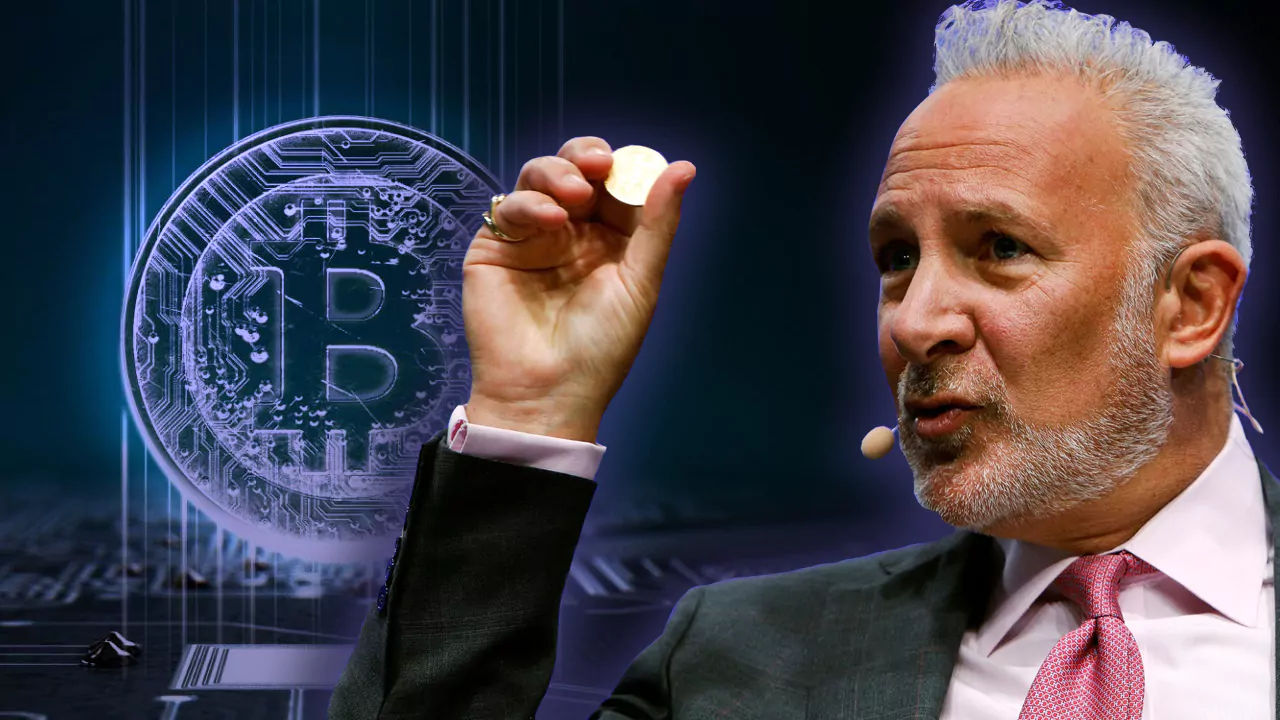Peter Schiff Labels Bitcoin a Meme Coin, Drawing Crypto Community Backlash
22.01.2025 9:00 2 min. read Alexander Zdravkov
Peter Schiff, a long-time Bitcoin critic, has stirred controversy once again by labeling the leading cryptocurrency a "meme coin."
In a recent social media post, Schiff mocked Bitcoin advocate Anthony Pompliano, who attempted to define meme coins during a CNBC interview. Schiff claimed there’s little distinction between Bitcoin and other popular meme cryptocurrencies, stating, “It’s a fine line to walk when explaining a meme coin without exposing the same fraud about Bitcoin.”
Schiff’s comments reignite an ongoing debate within the crypto community, especially as meme coins gain traction in the digital asset space. Many Bitcoin proponents, who typically hold more traditional views on cryptocurrency, have distanced themselves from the meme coin trend, fearing it could harm the broader industry’s reputation.
Known for his skepticism toward Bitcoin since its early days, Schiff has repeatedly dismissed the idea that it could rival gold. “Gold is real money, backed by its tangible properties, as recognized by the U.S. Constitution,” he argued, referring to Bitcoin as “fool’s gold.”
This stance has made Schiff a polarizing figure, with critics accusing him of using Bitcoin as a target to stay relevant. In response, Schiff has asserted that his popularity predates the existence of the cryptocurrency.
The clash between Schiff and Bitcoin advocates underscores the ongoing tension between traditional finance perspectives and the growing crypto movement, highlighting the polarizing nature of digital assets in today’s financial discourse.
-
1
Standard Chartered Becomes First Global Bank to Launch Bitcoin and Ethereum Spot Trading
15.07.2025 11:00 1 min. read -
2
Bitcoin Reaches New All-Time High Above $116,000
11.07.2025 7:56 1 min. read -
3
What’s The Real Reason Behind Bitcoin’s Surge? Analyst Company Explains
12.07.2025 12:00 2 min. read -
4
Canadian Bank Sees Bitcoin Hitting $155,000 by 2025
15.07.2025 10:00 1 min. read -
5
Peter Schiff Warns of Dollar Collapse, Questions Bitcoin Scarcity Model
12.07.2025 20:00 1 min. read
Bitcoin Risk Cycle Flips Again as Market Enters Safer Zone
Bitcoin’s market signal has officially shifted back into a low-risk phase, according to a new chart shared by Bitcoin Vector in collaboration with Glassnode and Swissblock.
Robert Kiyosaki Warns of 1929-Style Crash, Urges Bitcoin Hedge
Financial author Robert Kiyosaki is once again sounding the alarm on America’s economic health.
Metaplanet Adds $92.5M in Bitcoin, Surpasses 17,000 BTC Holdings
Metaplanet Inc., a Tokyo-listed company, has just added 780 more Bitcoin to its treasury. The purchase, announced on July 28, cost around ¥13.666 billion or $92.5 million, with an average price of $118,622 per BTC.
China and U.S. Plan Trade Truce Extension Before Talks: How It Can Affect Bitcoin
The United States and China are expected to extend their trade truce by 90 days. The extension would delay new tariffs and create space for fresh negotiations in Stockholm.
-
1
Standard Chartered Becomes First Global Bank to Launch Bitcoin and Ethereum Spot Trading
15.07.2025 11:00 1 min. read -
2
Bitcoin Reaches New All-Time High Above $116,000
11.07.2025 7:56 1 min. read -
3
What’s The Real Reason Behind Bitcoin’s Surge? Analyst Company Explains
12.07.2025 12:00 2 min. read -
4
Canadian Bank Sees Bitcoin Hitting $155,000 by 2025
15.07.2025 10:00 1 min. read -
5
Peter Schiff Warns of Dollar Collapse, Questions Bitcoin Scarcity Model
12.07.2025 20:00 1 min. read


